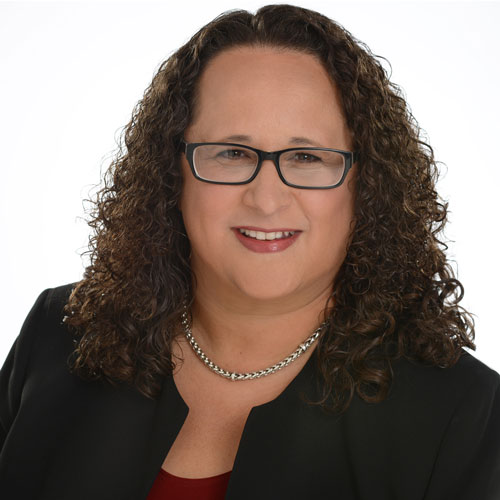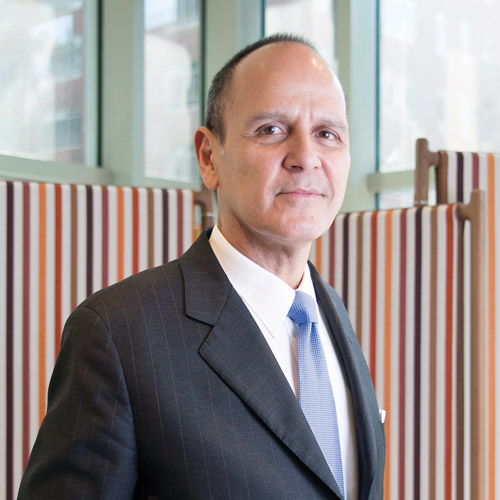In the digital age, shopping at Fab.com is about as close as one can get to treasure hunting. The most interesting find at Fab.com, however, isn’t whisky-scented dish soap, a solar-powered tent, or coasters made from volcanic stones; it’s attorney-cum-fashion designer Fabio Silva, the company’s senior vice president and general counsel. In this conversation with Hispanic Executive, he shares how a difficult upbringing inspired him to transcend his past and build a future of his own design.
A Través
de los Años
Fabio Silva’s journeyfrom rags to fabulous rags
1969
Silva is born in a small pueblo
in Mexico.
1974
Silva immigrates to the United States from Mexico.
1985
A tragic accident puts Silva’s father into a coma; he dies shortly thereafter, causing Silva to temporarily quit school.
1989
Silva graduates high school and attends Glendale Community College in Glendale, CA, where he finishes a two-year program in one and a half years before transferring to the University of California, Santa Barbara.
1994
After a brief stint in economics, Silva moves to San Francisco and applies to law school. He is accepted to eight of the country’s top 25 law schools and ultimately chooses Stanford Law School.
1998
Silva graduates law school, moves to Washington, DC, and spends four years working as a legal associate, first at Crowell & Moring, then at Arnold & Porter.
2002
Silva moves to New York to pursue his dream of being educated in the arts. He enrolls in Parsons School of Design and graduates a year later with a fashion degree.
2003
Silva accepts an internship at Burberry, which leads to a full-time job as an intellectual property counsel.
2007
Silva becomes vice president of legal at Burberry, serving as the British company’s lead attorney in North America.
2011
A restructuring prompts Silva to leave Burberry. He joins Tory Burch for a seven-month term as interim associate general counsel.
2012
Silva presses pause on his career while he awaits a new opportunity, which arrives in September when he joins Fab.com as senior vice president and general counsel.
2014
The National LGBT Bar Association honors Silva with its “Out & Proud Corporate Counsel” award.
Although you later became a legal resident, you were undocumented when you came to the United States. How did you get here?
I was born in 1969 in a very small pueblo southwest of Guadalajara, Mexico. My father was a self-taught family portrait photographer. Unfortunately, he didn’t make enough money to support our family, so not long after I was born—the fourth of what would ultimately be five children—he went to California to look for work. He found a job as a janitor at a psychiatric hospital in the San Fernando Valley.
My mother had no desire to move to the United States, but eventually she made the trip, if only to try convincing him to return to Mexico. She ended up getting a job at the same hospital running the laundry machines in the basement. Ultimately, they concluded: there’s nothing for us in Mexico, let’s fetch the children.
At that point, our maternal grandparents were raising us. My parents paid a woman to take us over the border on a bus, claiming she was our nanny. If questioned, she was to say she’d taken these four American children into Mexico to visit their grandparents, and we were now on our way back. It was 1974, so I imagine it was much easier to go in and out of the country than it is now. The woman did her job and got us safely across the border.
No doubt, your upbringing in an immigrant family influenced you. What childhood event impacted you most?
For a very short time we had a guinea pig. In order to keep the guinea pig fed, my parents would dig in the trash bins behind the grocery store, looking for vegetables. However, what they also found was discarded food that was still edible—canned food that was dented, things like that.
So even after the guinea pig died they still made a habit of swinging by the back of the grocery store when they did the weekly grocery shopping. It was during one of these trips that my father fell from a canister and hit his head on the asphalt. My father drank, so when he showed up at the emergency room he smelled of it. The doctors assumed he was drunk, as opposed to having head trauma, so they sent him home without running any tests. That night my father hemorrhaged and fell into a coma. Six weeks later he passed away. I was 14 or 15 at that time and was so angry at the injustice, I shut down mentally and stopped going to school.
How did you turn things around?
I was working at a convalescent hospital in the kitchen as a dishwasher. I realized, my parents came to this country for the promise of a better opportunity, and I’m washing dishes for $3.92 an hour. I went back to school with a renewed outlook. I wanted to achieve something so I could move on and start my life somewhere else.
In my final semester of high school my journalism teacher asked, “Don’t you want to go to college?” I had just assumed I couldn’t afford it. The teacher looked at me and said, “You do realize you can get financial aid?” That was news to me. The following semester I registered at Glendale Community College.
You achieved a lot in the subsequent decade: You finished community college and transferred to a four-year university, where you graduated with honors; you went to Stanford Law School; you worked as a legal associate in Washington, DC. Then you did something unusual: you went to fashion school. Why?
9/11 had happened and a lot of people were thinking about fulfillment. Life is short. After four years of practicing at law firms, I just had to ask myself: Is this where I want to be? Something I didn’t want to regret on my deathbed was to never have been trained in any sort of art despite my desire for a creative outlet. I wanted to try living in New York, so I applied to Parsons School of Design because they had a fashion design program I could finish within a year. I applied, got in, gave my notice at work, sold my condo, and moved to the Big Apple.
Having both legal and fashion degrees opened some interesting doors for you: after Parsons, you became an in-house lawyer for Burberry and Tory Burch and then Fab.com. Did you find the fulfillment you were looking for?
Yes. I am continuously inspired at Fab.com because I work closely with incredibly creative people. This includes professionals who design the look and feel of the company’s website and who design new products. When I meet with these people, I get a firsthand account of the creative process and how one goes from inspiration to a finished product. One of the reasons I went to design school was because I wanted to explore the right side of my brain. Now that I’m practicing law again, it’s so nice to still be working alongside creative individuals.
You recently won the National LGBT Bar Association’s Out and Proud Corporate Counsel award. What does the award mean to you?
Without the ability to come out and take pride in who I am, I would not have been able to function with the level of confidence that is required in a corporate environment. The National LGBT Bar Association gave me the award because it believes in showcasing out and proud attorneys who have reached a highly visible position in corporate America. I hope to help encourage others to come out early in their careers and become role models themselves.
By living in New York City, attending fashion design school, and working at Burberry, Tory Burch, and Fab.com, I’m sure I take the freedom of being “out” for granted. I have to remind myself that it’s not that easy in other industries and in other parts of America.
You’ve achieved so many of your goals. What major lessons can you share that you have gained during the process?
In between my jobs at Tory Burch and Fab.com I was unemployed. I had no reason to dress up on weekdays, and would run errands on my Vespa. During that time, I was mistaken multiple times for a food-delivery person. Rather than being upset that I was mistaken for a delivery person, I looked at it differently: What separates me from one?
The answer is education. Education is the only real way someone like me could be where I am today. And yet, it does not change where I came from or what I look like. My experiences and the extremes I’ve seen in forty-four years of life have led me to judge people based on their values. Someone’s level of education will tell me whether he/she has the necessary skill set to handle the work, and their values will tell me whether I want to work with them.
EDITOR’S NOTE: At press time, Hispanic Executive editors learned that Fabio Silva would no longer be with Fab.com as a result of its legal department relocating to Berlin, Germany—the company plans to shift its focus to Europe. About one month after press time, Silva accepted a position as VP of Legal Affairs for the Giorgio Armani Corporation. He will head up all legal matters for Armani in the Americas.

